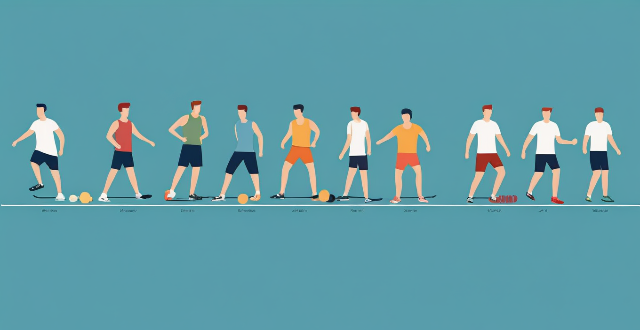Sport psychology counseling aims to improve athletic performance and mental skills. The timeline for seeing results varies based on factors like individual differences, goal specificity, commitment level, and support systems. Short-term results include increased awareness and improved focus within 1-3 months, mid-term results such as enhanced confidence and performance within 3-6 months, and long-term results like sustained success and deepened self-understanding after 6+ months of consistent counseling. Working with a qualified sport psychology professional and maintaining commitment can maximize potential for success in sports and life.

How Long Does It Typically Take to See Results from Sport Psychology Counseling?
Introduction
Sport psychology counseling is a specialized form of therapy that focuses on improving athletic performance, enhancing mental skills, and managing the psychological challenges faced by athletes. The duration for seeing results from sport psychology counseling can vary depending on several factors. In this article, we will explore the typical timeline for observing improvements in athletic performance and overall well-being through sport psychology counseling.
Factors Affecting the Timeline
The time it takes to see results from sport psychology counseling can be influenced by various factors, including:
- Individual Differences: Each athlete has unique personality traits, motivation levels, and learning styles, which can impact the rate of progress.
- Goal Specificity: Clearly defined goals are more likely to lead to quicker results than vague or broad objectives.
- Commitment Level: Consistent engagement in counseling sessions and dedication to practicing new skills outside of sessions can accelerate progress.
- Coach and Team Support: A supportive coaching staff and team environment can enhance the effectiveness of sport psychology interventions.
Typical Timeline for Seeing Results
While individual experiences may vary, here is a general timeline for observing improvements through sport psychology counseling:
Short-Term Results (1-3 Months)
- Increased Awareness: Athletes become more aware of their thoughts, emotions, and behaviors related to sports performance.
- Improved Focus: Better concentration during training and competitions as a result of enhanced mental skills.
- Reduced Anxiety: Decreased feelings of nervousness or tension before and during events due to coping strategies learned in counseling.
Mid-Term Results (3-6 Months)
- Enhanced Confidence: Greater belief in one's abilities and capabilities as an athlete.
- Improved Performance: Noticeable improvements in athletic performance, such as better technique, endurance, or strength.
- Greater Resilience: Improved ability to bounce back from setbacks or failures encountered during training or competitions.
Long-Term Results (6+ Months)
- Sustained Success: Consistent achievement of personal bests and long-term improvement in athletic performance.
- Deepened Self-Understanding: A deeper understanding of oneself as an athlete, including strengths, weaknesses, values, and motivations.
- Lifelong Skills: Acquisition of lifelong mental skills that can be applied not only in sports but also in other areas of life.
Conclusion
The duration for seeing results from sport psychology counseling can vary based on multiple factors, including individual differences, goal specificity, commitment level, and coach and team support. Generally, short-term results such as increased awareness and improved focus can be observed within 1-3 months, mid-term results like enhanced confidence and improved performance within 3-6 months, and long-term results including sustained success and deepened self-understanding after 6+ months of consistent counseling. By working closely with a qualified sport psychology professional and maintaining a high level of commitment, athletes can maximize their potential for achieving success both on and off the field.